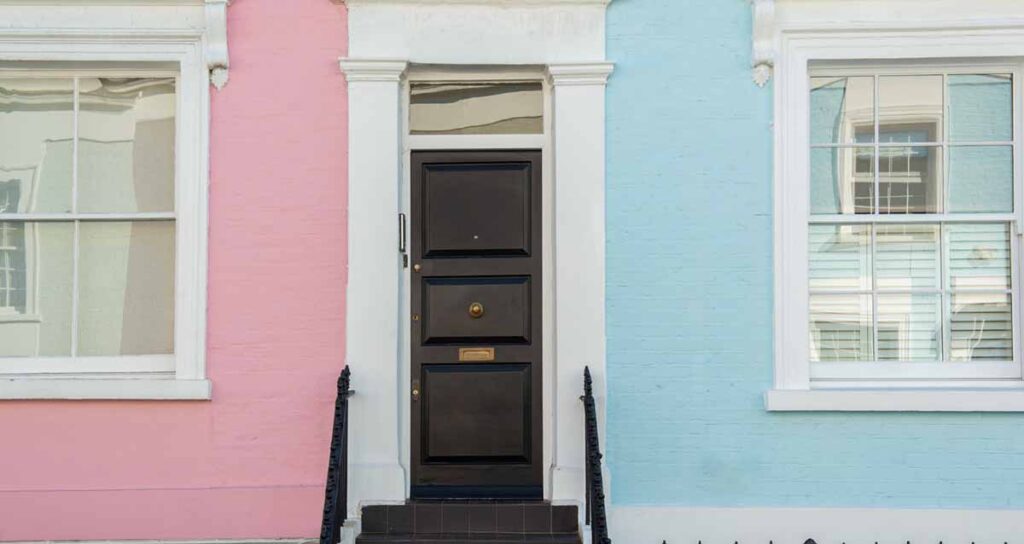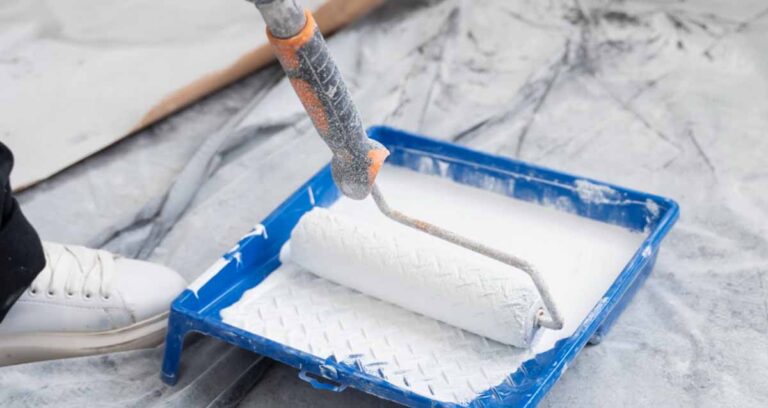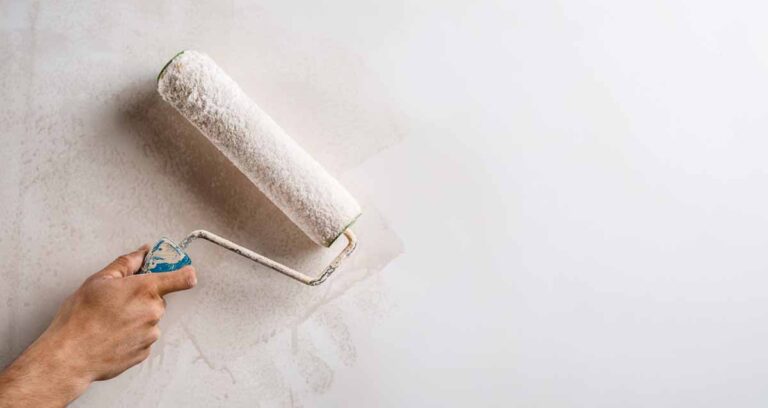- Free Estimates

Maintaining the exterior of your house is essential not just for the aesthetic appeal of your property but also for its structural integrity. One of the most effective ways to maintain the exterior of your house is to have it painted regularly. But how often should you paint your house exterior? In this blog post, we’ll discuss the factors that affect how often a house exterior needs to be painted, the signs that your exterior house needs repainting, and recommendations for how often to repaint your house exterior.
Several factors can affect how often a house exterior needs to be painted. Here are some of the most critical factors that Glastonbury painting contractors take into account when determining when to repaint a house:
Extreme temperatures, high humidity, and frequent rain or snowfall can significantly impact the paint’s lifespan. Therefore, if you’re in an area with such weather conditions, you may need to repaint more frequently than houses in milder climates. For example, in Glastonbury, CT, where the climate is characterized by cold winters and hot summers with occasional precipitation, painting contractors recommend repainting every three to seven years, depending on the quality of the paint job and the condition of the siding.
Wood siding, for instance, requires more frequent repainting than vinyl siding. This is because moisture makes the wood more susceptible to rot, insect damage, and warping. On the other hand, vinyl siding is relatively low-maintenance and can last up to 20 years without needing to be repainted.
Siding in poor condition, such as siding with cracks, rot, or insect damage, may require more frequent repainting. Before repainting your house, inspect the siding for any signs of damage or wear and tear. Glastonbury painting contractors recommend repairing or replacing damaged siding before repainting to ensure a smooth and long-lasting paint job. Proper preparation and repair work can help extend the lifespan of your paint job and prevent the need for premature repainting.

If your house has had a previous paint job done well, you may be able to wait longer before repainting. However, if the previous paint job was poorly executed or used low-quality paint, you may need to repaint it sooner. Poor paint application can lead to premature wear and tear, while low-quality paint can fade or peel more quickly than higher-quality paint.
When selecting a painting contractor for your house exterior, it’s essential to choose one that uses high-quality paint and has a proven track record of quality workmanship. Glastonbury painting contractors pride themselves on using the best paint products and applying them with the highest skill and precision. A well-executed and high-quality paint job can help extend the lifespan of your house exterior and save you money in the long run.
Believe it or not, the color you choose can affect the lifespan of the paint job. Darker colors tend to fade faster than lighter colors, requiring more frequent repainting.
This is because darker colors absorb more heat from the sun, which can cause the paint to expand and contract, leading to cracking and peeling. Additionally, darker colors are more likely to show dirt and other stains, making your house exterior look unsightly and requiring more frequent cleaning.
If you want to choose a darker color for your house exterior, consider using high-quality paint specifically designed for dark colors. These paints often contain more pigments and UV inhibitors, which can help prevent fading and extend the lifespan of the paint job.
Areas that receive more sunlight may require more frequent repainting than those that receive less. This is because exposure to sunlight can cause the paint to fade and break down more quickly, particularly in areas where the sun is strong and intense. UV rays from the sun can cause the paint to break down chemically, leading to premature peeling and cracking.
If your house is in an area that receives a lot of sunlight, you may need to repaint it more frequently than if it were in a shadier area.

Now that we’ve discussed the factors that affect how often a house exterior needs to be painted, let’s look at the signs that your exterior house needs repainting. Here are some of the most common indicators that it’s time to repaint your house:
Fading occurs when the paint color looks dull or washed out, while chalking happens when a powdery substance forms on the paint’s surface. Both conditions can be caused by exposure to the elements, such as sunlight, rain, and wind.
If you notice that your house exterior is fading or chalking, promptly addressing the issue is essential. Leaving faded or chalky paint in place can cause it to wear away more quickly, leading to more extensive and costly repairs in the future. Glastonbury painting contractors recommend repainting your house exterior when you notice signs of fading or chalking.
If you notice cracking or peeling paint on the exterior of your house, it is a clear indication that repainting is necessary. Cracking is characterized by the appearance of small, hairline cracks in the paint, while peeling occurs when the paint begins to flake and peel away from the surface. Addressing these issues promptly can help prevent further damage to your home and ensure it maintains its curb appeal and value.
Wood rot or moisture damage on the house exterior is a clear indication that it needs repainting. This issue is severe and can cause significant damage to the structure. Signs of wood rot or moisture damage include soft or spongy wood, cracks, and discoloration, which can compromise the integrity of the building. Repainting can help prevent moisture damage and wood rot by creating a protective barrier against moisture.
These stains can be caused by a variety of environmental factors, including mold, mildew, and other contaminants. Repainting can help restore the appearance of your home by covering up any unsightly stains or discoloration. Additionally, it can protect your home’s exterior from further damage caused by these environmental factors, helping to maintain its value and curb appeal.
These blisters or bubbles form when moisture gets trapped underneath the paint, causing it to lift from the surface. This issue can compromise the paint’s integrity, leading to further damage, such as cracking or peeling. Repainting can help restore the appearance of your home by creating a new protective layer that will prevent moisture from getting underneath the paint.

Based on the factors and signs discussed above, it’s clear that there is no one-size-fits-all answer to the question of how often a house exterior needs to be painted. The frequency of repainting depends on various factors unique to each house and its environment. That said, here are some general recommendations for how often to repaint your house exterior based on common scenarios:
If your house has wood siding and is located in a wet climate, such as Glastonbury, CT, you should repaint it every three to seven years, depending on the quality of the paint job and the condition of the siding.
If your home has vinyl siding and is located in a dry climate, such as the southwestern United States, you will likely need to repaint it every ten to fifteen years. Despite its durability and resistance to moisture, vinyl siding can fade and become discolored over time due to exposure to UV rays from the sun.
If your home has a dark paint color, it may require more frequent repainting than if it has a lighter color. Dark colors tend to fade faster, particularly in areas with intense sunlight. This fading can result in an uneven or patchy appearance, which can be unsightly and compromise your home’s curb appeal. Repainting with high-quality paint can help ensure the longevity of your home’s exterior.
Regular maintenance of your house exterior can help extend the lifespan of your paint job. Glastonbury painting contractors recommend inspecting your house exterior annually for signs of damage or wear and tear. Addressing these issues promptly can help prevent the need for premature repainting.
Maintaining the exterior of your house is essential for protecting it from the elements and preserving its value. Repainting your house exterior is one of the most effective ways to maintain its appearance and structural integrity.
If you’re looking for a professional house painting company in Glastonbury, CT, look no further than Glastonbury Professional House Painters. Our team of experienced painting contractors has the knowledge and expertise to help you maintain your house exterior and keep it looking its best. Contact us today to schedule a consultation and get started on your house painting project.